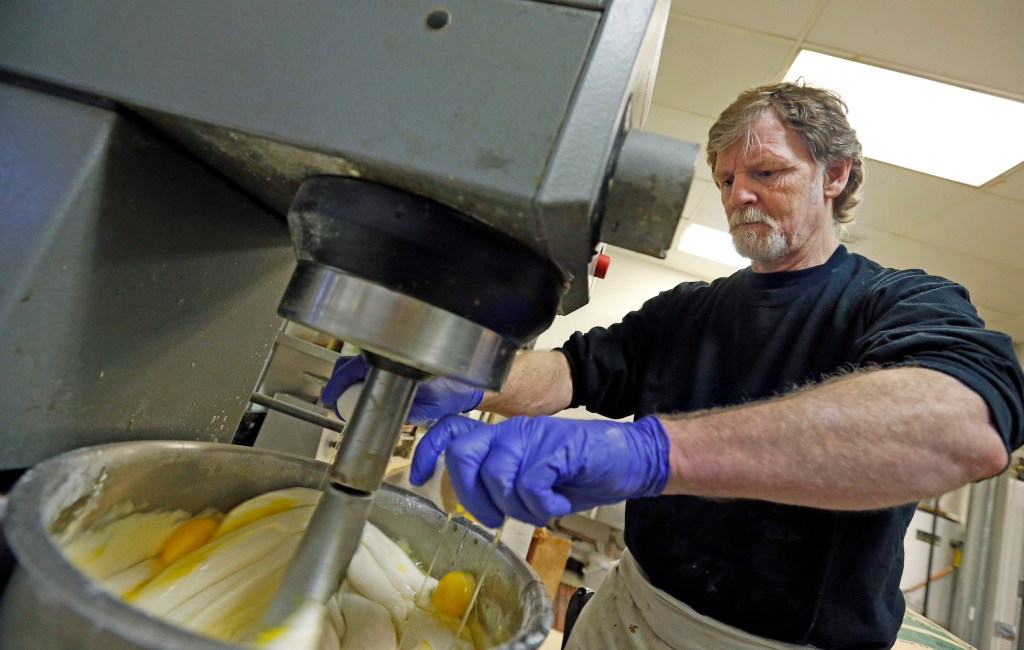Should a Colorado baker have the right to turn away a gay couple seeking a custom wedding cake if he disapproves of their upcoming marriage? According to the Justice Department, the answer is yes.
The Supreme Court will soon hear arguments over the conduct of this unwilling baker in Masterpiece Cakeshop v. Colorado Civil Rights Commission. Though the federal government isn’t a party to the case, the Justice Department has made a point of weighing in on the side of Jack Phillips, the “cake artist” whose religious opposition to same-sex marriage led him to refuse to design a cake for a gay couple. (The pair eventually obtained a rainbow-layered cake.)
The Justice Department’s legal brief has — rightly — faced criticism from civil rights groups appalled by the government’s argument that Phillips’ religious beliefs grant him a constitutional right to discriminate against gay customers, despite a Colorado public-accommodations law prohibiting unequal treatment on the basis of sexual orientation. Indeed, the brief is a dispiriting signal of Attorney General Jeff Sessions’ priorities. The government went out of its way to side with Phillips, but it has been quiet on any number of other significant cases before the Supreme Court this term.
The brief frames the case as a matter of free expression rather than free exercise of Phillips’ religious beliefs. That’s because Masterpiece Cakeshop isn’t really a religious-freedom case at all. Because Colorado lacks legislation raising the standard for state infringement on religious belief, Phillips is left with what’s likely a losing argument.
That’s why both Phillips and the Justice Department focus on the baker’s freedom of expression, arguing that crafting a cake for a same-sex wedding would force Phillips to celebrate a ceremony of which he disapproves. Yet there is little reason to believe that wedding guests would attribute to the cake baker an endorsement of the festivities as a whole — or that a reasonable guest might believe that of the baker rather than of the wedding hairdresser, the caterer or the hotel providing the venue.
The Justice Department’s effort to craft a narrow exception to public-accommodations law risks blowing a hole through the fabric of that law entirely. Phillips is providing a service to his customers for pay. While he does so, he should be subject to anti-discrimination laws like every other business is.
Strangely, the government’s brief closes by quoting the Supreme Court’s decision in Obergefell v. Hodges, in which the court held that same-sex couples have a constitutional right to marry. Two years after Obergefell, cases such as Masterpiece Cakeshop have been relatively unsuccessful and few and far between — a sign of a nation moving forward. The Supreme Court should now resist the Justice Department’s effort to turn back the clock.
Editorial by The Washington Post
Send questions/comments to the editors.



Comments are no longer available on this story